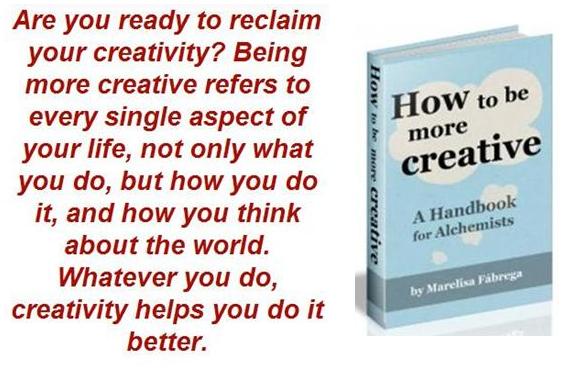 “How to Succeed”, or “Stepping-Stones to Fame and Fortune”, was written by Orison Swett Marden in 1896. It’s the third book written by Marden that I’ve read, and I’m quickly becoming a fan of his.
“How to Succeed”, or “Stepping-Stones to Fame and Fortune”, was written by Orison Swett Marden in 1896. It’s the third book written by Marden that I’ve read, and I’m quickly becoming a fan of his.
I’ve extracted 49 snippets of wisdom from “How to Succeed”, which you can read below:
1. “Many of us who think we are poor are rich in opportunities, if we could only see them.”
2. “Do the best you can where you are; and, when that is accomplished, God will open a door for you, and a voice will call, ‘Come up hither into a higher sphere.’” — Beecher
3. Seize opportunities: Let nothing escape you which you can possibly use for your own advancement; keep your ears open for every sound that can help you on your way; keep your hands open and clutch at every opportunity; be ever on the alert for everything which can help you to get on in the world.
4. Seize every experience in life and grind it up into paint for your life’s picture.
5. If you want to get rich, study yourself and your own wants. You will find millions of others have the same wants, the same demands. The safest business is always connected with men’s prime necessities.
6. Any man who can supply a great want of humanity, improve any methods which men use, supply any demand or contribute in any way to their well-being, can make a fortune.
7. First find out what the people need and then supply that want.
8. Don’t think you have no chance in life because you have no capital to begin with. Most of the rich men of today began poor.
9. God has given every man a capital to start with; we are born rich. He is rich who has good health, a sound body, good muscles; he is rich who has a good head, a good disposition, a good heart; he is rich who has two good hands, with five chances on each.
10. Man only grows when he is developing along the lines of his own individuality, and not when he is trying to be somebody else. All attempts to imitate another man, when there is no one like you in all creation, as the pattern was broken when you were born, is not only to ruin your own pattern, but to make only an echo of the one imitated.
11. Don’t wait for a higher position or a larger salary. Enlarge the position you already occupy; put originality of method into it. Fill it as it never was filled before.
Be more prompt, more energetic, more thorough, more polite than your predecessor or fellow-workmen.
Study your business, devise new modes of operation, be able to give your employer points.
The art lies not in giving satisfaction merely, not in simply filling your place, but in doing better than was expected, in surprising your employer; and the reward will be a better place and a larger salary.
12. Show me a man who has made fifty thousand dollars, and I will show you in that man an equivalent of energy, attention to detail, trustworthiness, punctuality, professional knowledge, good address, common sense, and other marketable qualities.
13. Don’t yield to vice, dishonesty, or idleness.
14. Help yourself and others will help you.
15. Alexander Hamilton said, “Men give me credit for genius. All the genius I have lies just in this: when I have a subject in hand I study it profoundly. Day and night it is before me. I explore it in all its bearings. My mind becomes pervaded with it. Then the effort which I make the people are pleased to call the fruit of genius; it is the fruit of labor and thought.”
16. The law of labor is equally binding on genius and mediocrity.
17. “I have been watching the careers of young men by the thousand in this busy city of New York for over thirty years,” said Dr. Cuyler, “and I find that the chief difference between the successful and the failures lies in the single element of staying power.”
18. Man never reaches heights above his habitual thought.
19. We are responsible for our thoughts, and unless we could command them, mental and moral excellence would be impossible.
20. It is difficult to estimate the great influence upon a life of the early formed habit of doing everything to a finish, not leaving it half done, or pretty nearly done, but completely done.
21. Nature finishes every little leaf, even to every little rib, its edges and stem, as exactly and perfectly as though it were the only leaf to be made that year. Even the flower that blooms in the mountain dell, where no human eye will ever behold it, is finished with the same perfection and exactness of form and outline, with the same delicate shade of color, with the same completeness of beauty, as though it was made for royalty in the queen’s garden.
22. Sustain misfortune bravely; endure poverty nobly; encounter disappointment courageously.
23. “No great deed is done,” says George Eliot, “by falterers who ask for certainty.”
24. To think we are able is almost to be so; to determine upon attainment, is frequently attainment itself.
25. It is he who resolves to succeed, and who at every fresh rebuff begins resolutely again, that reaches the goal.
26. Persistency is characteristic of all men who have accomplished anything great. They may lack in some other particular, have many weaknesses, or eccentricities, but the quality of persistence is never absent in a successful man.
27. It is not so much brilliancy of intellect or fertility of resource as persistency of effort, constancy of purpose, that makes a great man.
28. Everybody believes in the man or woman who persists.
29. Even the man with small ability will often succeed if he has the quality of persistence, where a genius without persistence would fail.
30. The very reputation of being strong-willed, plucky, and indefatigable is of priceless value.
31. “Never despair,” says Burke, “but if you do, work on in despair.”
32. Stick to the thing and carry it through.
33. “To be happy, the person must be cheerful and gay, not gloomy and melancholy. A propensity to hope and joy is real riches.” — Hume
34. Dr. Johnson once remarked with his point and pith that the custom of looking on the bright side of every event was better than having a thousand pounds a year income.
35. “We have not fulfilled every duty, unless we have fulfilled that of being pleasant.”
36. The pendulum of a certain clock began to calculate how often it would have to swing backward and forward in the week and in the month to come; then looking further into the future, it made a calculation for a year, etc. The pendulum got frightened and stopped.
37. Do one day’s work at a time. Do not worry about the trouble of tomorrow.
38. But oh, for the glorious spectacles worn by the good-natured man!—oh, for those wondrous glasses, finer than the Claude Lorraine glass, which throw a sunlit view over everything, and make the heart glad with little things, and thankful for small mercies!
39. “If there be a faith that can remove mountains, it is faith in one’s own power.” — Marie Ebner-Eschenbach.
40. Believe in yourself; you may succeed when others do not believe in you, but never when you do not believe in yourself.
41. Great men have usually had great confidence in themselves.
- Wordsworth felt sure of his place in history and never hesitated to say so.
- Dante predicted his own fame.
- Kepler said it did not matter whether his contemporaries read his books or not. “I may well wait a century for a reader since God has waited six thousand years for an observer like myself.”
- “Fear not,” said Julius Cæsar to his pilot frightened in a storm, “thou bearest Cæsar and his good fortunes.”
- “Heaven takes a hundred years to form a great genius for the regeneration of an empire and afterward rests a hundred years,” said Kaunitz, who had administered the affairs of his country with great success for half a century. “This makes me tremble for the Austrian monarchy after my death.”
42. Self-respect is the early form in which greatness appears.
43. One of the greatest aids to education is the habit of writing out an analysis or a skeleton of a book or article after we have read it.
44. “What property has he left behind him?” people ask when a man dies; but the angel who receives him asks, “What good deeds hast thou sent before thee?”
45. Some people are born happy. No matter what their circumstances are they are joyous, content and satisfied with everything. They carry a perpetual holiday in their eye and see joy and beauty everywhere.
When we meet them they impress us as just having met with some good luck, or that they have some good news to tell you.
Like the bees that extract honey from every flower, they have a happy alchemy which transmutes even gloom into sunshine.
In the sick room they are better than the physician and more potent than drugs.
All doors open to these people. They are welcome everywhere.
46. “Who is the richest of men?” asked Socrates. “He who is content with the least, for contentment is nature’s riches.”
47. “No man can tell whether he is rich or poor by turning to his ledger,” says Beecher. “It is the heart that makes a man rich. He is rich or poor according to what he is, not according to what he has.”
48. If our thoughts are great and noble, no mean surroundings can make us miserable. It is the mind that makes the body rich.
49. We make our own worlds and people them, while memory, the scribe, faithfully registers the account of each as we pass the milestones dotting the way. Are we not, then, responsible for the inhabitants of our little worlds? We should fill them with the true, the beautiful and the good, since we are endowed with the faculty of creating.
Apply the tips above on how to succeed, and begin living your best life now.


Related Posts:
1. 72 Of the Best Success Quotes
2. The Key To Goal Success: Setting Implementation Intentions
3. 99 Powerful Questions to Ask to Turbocharge Your Life
4. The Three-Step Formula For Success
5. What Does “Success” Mean To You?
Did you enjoy this article? Subscribe to “Daring to Live Fully” by RSS or by email, and get free updates.







 Marelisa Fabrega is a lawyer and entrepreneur. She holds a Bachelor of Science in Business Administration from Georgetown University in Washington, D.C., as well as a Juris Doctor from the Georgetown University Law Center. You can learn more about her
Marelisa Fabrega is a lawyer and entrepreneur. She holds a Bachelor of Science in Business Administration from Georgetown University in Washington, D.C., as well as a Juris Doctor from the Georgetown University Law Center. You can learn more about her 






Comments on this entry are closed.
I am quickly becoming a fan of yours! Thank you for these great posts as well as your wonderful “best life” materials.
Hi Bill: Thank you! I’m glad you’re enjoying my blog posts. 🙂
went thro your blog impressed. Thanks
Marelisa: I really enjoyed reading your article and I got some good enlightenment! I love reading anything motivational, but this one I loved the most, “Sustain misfortune bravely; endure poverty nobly; encounter disappointment courageously.” We must all be strong for ourselves, loved ones and endure until the end in a life of righteousness.
Best Wishes,
William Veasley